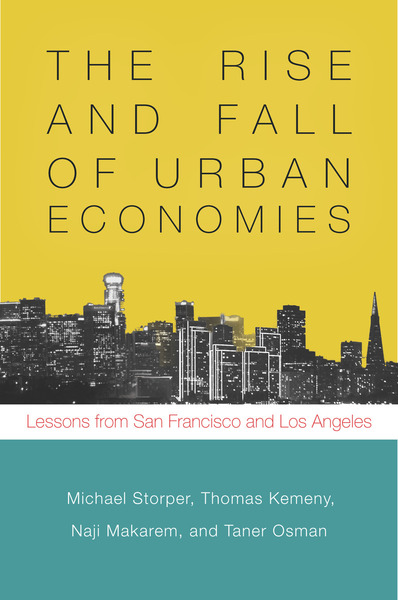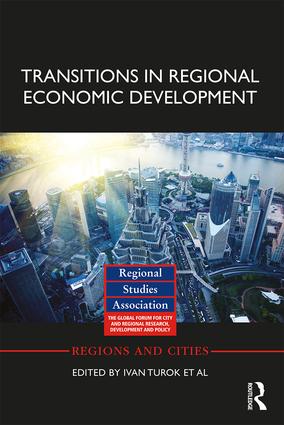Books

The Rise and Fall of Urban Economies: Lessons from San Francisco and Los Angeles
Today, the Bay Area is home to the most successful knowledge economy in America, while Los Angeles has fallen progressively further behind its neighbor to the north and a number of other American metropolises. Yet, in 1970, experts would have predicted that L.A. would outpace San Francisco in population, income, economic power, and influence. The usual factors used to explain urban growth—luck, immigration, local economic policies, and the pool of skilled labor—do not account for the contrast between the two cities and their fates. So what does?
The Rise and Fall of Urban Economies challenges many of the conventional notions about economic development and sheds new light on its workings. The authors argue that it is essential to understand the interactions of three major components—economic specialization, human capital formation, and institutional factors—to determine how well a regional economy will cope with new opportunities and challenges. Drawing on economics, sociology, political science, and geography, they argue that the economic development of metropolitan regions hinges on previously underexplored capacities for organizational change in firms, networks of people, and networks of leaders. By studying San Francisco and Los Angeles in unprecedented levels of depth, this book extracts lessons for the field of economic development studies and urban regions around the world.

Transitions in Economic Development
At a time of extraordinary challenges confronting the world, this book analyses some of the profound changes occurring in the development of cities and regions. It discusses the uncertainties associated with the stalling of hyper-globalization and asks whether this creates opportunities for resurgent regional economies driven by local capabilities, resource efficiencies and domestic production. Theory and evidence on socio-economic and environmental transitions underway in many regions are brought together. Implications of the shifting balance of global power towards emerging economies in the East are explored, along with the consequences of urbanization in the global South for politics and democracy. Dilemmas surrounding migration are also discussed, including whether incomers displace local workers and depress wages, or bring benefits in the form of know-how, new technology and investment. More integrative concepts of the region and theories of regional development are analysed, recognising the role of human capital, knowledge, innovation, finance, infrastructure and institutions.